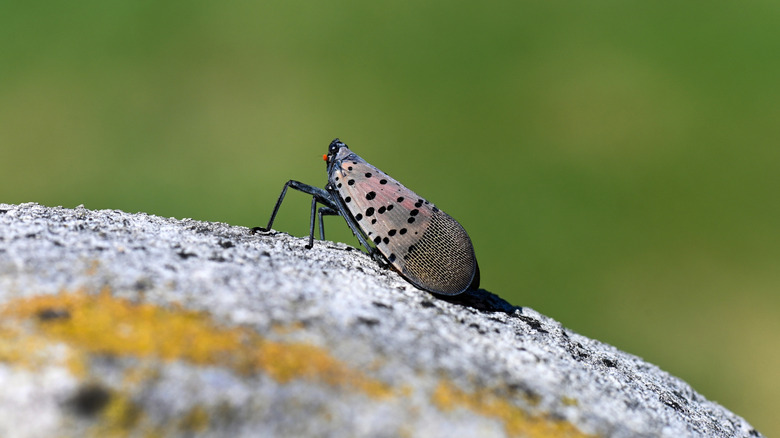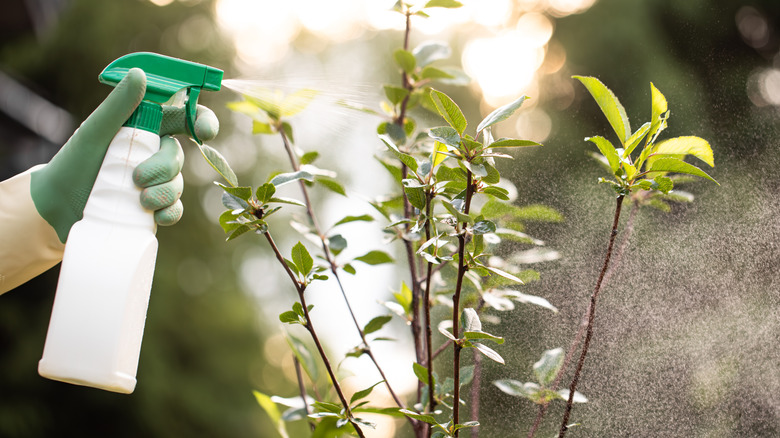Wipe Out Lanternflies Naturally With A Couple Of Kitchen Ingredients You Already Have
When it comes to plant life, there's nothing more devastating than finding out that you have a pest problem, especially when that pest is a spotted lanternfly. This invasive species has a hearty appetite for a wide variety of plants, such as fruit trees and essential hardwoods. As the lanternflies feed on these plants, they leave behind a sticky substance called honeydew, which drips down onto plants, outdoor furniture, and even cars. This honeydew promotes the growth of sooty mold, a black fungus that can cover and damage plants, making them unable to perform photosynthesis effectively. Luckily, you can use a mixture of water and dish soap to combat these pests, leaving your garden safer and healthier.
Using soap and water to wipe out lanternflies naturally gets the job done without the need for harsh chemicals. The downside is that this solution only works on contact and does not have a residual effect, so you'll need to be persistent with application. Also, once you're done spraying the lanterflies that are on your plants, you'll want to rinse the soapy residue off your plants using clean water to prevent leaf burn.
How to handle lanternfly removal
Even though lanternflies are a major nuisance, there are a few simple DIY remedies that can help you get rid of them and protect your plants. First, you'll want to fill a spray bottle with a mixture of dish soap and water. Most people prefer Dawn, but any brand of mild dish soap works here. You'll want equal parts soap and water to create a rich, sudsy solution. Next, spray the mixture directly onto lanternflies, including eggs. The soapy mixture coats the lanternflies' bodies, suffocating them. For nymphs and adults, this should kill them on contact. Take note: while this solution is generally safe, it might cause leaf burn, especially on a hot and sunny day, or if sprayed repeatedly.
Another option to get rid of lanternflies fast is to use white vinegar directly from your pantry. You should be using vinegar in your garden for several reasons, including pest control. Here, you don't have to play chemist — simply fill a spray bottle with white vinegar and spray. This can kill lanternflies on contact, but be cautious about where you spray it. With this solution, you risk harming plants and foliage if you spray them directly with undiluted vinegar. Additionally, you'll want to take precautions when using vinegar, so be sure to wear gloves and eye protection to avoid any irritation.
If you're up for a more challenging approach, you can DIY a spotted lanternfly trap before they become a nuisance. This will help trap nymphs, preventing them from maturing into adults that can lay egg masses and further infest your garden. While this project may take you longer to assemble than the easy-to-use spray bottle, it can offer a more continuous solution for managing this particular pest.

